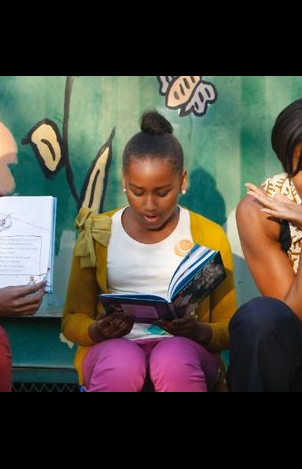Literacy Blogs
- All
- 3-cueing
- academic learning time
- academic vocabulary
- accommodations
- accountability testing
- Active View of Reading
- adolescent literacy
- afterschool programs
- alphabet
- amount of instruction
- amount of reading
- argument
- assessment
- auding
- author awareness
- automaticity
- balanced literacy
- beginning reading
- Book Buddies
- Book Flood
- challenging text
- classroom organization
- close reading
- coaching
- cohesion
- Common Core State Standards
- complex text
- comprehension strategies
- content area reading
- context analysis
- curriculum materials
- Daily 5
- decoding
- departmentalization
- DIBELS
- dictionary skills
- digital texts
- disciplinary literacy
- dyslexia
- early interventions
- effective teachers
- Emily Hanford
- executive function
- family literacy
- fingerpoint reading
- foundational skills
- graphic novels
- guided reading
- heterogeneous grouping of students
- homework
- improving reading achievement
- independent reading
- independent reading level
- informal reading inventories
- informational texts
- instructional level
- invented spelling
- jigsaw instruction
- knowledge
- leadership
- learning disabilities
- Lexiles
- linguistic comprehension
- listening comprehension
- literacy charities
- literacy policy
- literary interpretation
- main idea
- morphology
- motivation
- narrative text
- National Early Literacy Panel
- nonsense words
- oral language
- oral reading fluency
- paraphrasing
- Pause, Prompt, Praise (3P)
- personalized learning
- phonemes
- phonemic awareness
- phonics
- press and media
- principals
- prosody
- Readers' Workshop
- reading comprehension
- reading disabilities
- reading intervention
- reading levels
- reading models
- Reading Recovery
- reading research
- reading skills
- reading strategies
- reading to children
- reading wars
- reading-writing relations
- remedial reading
- rereading
- Response to Intervention
- Scarborough's Rope
- science of reading
- seatwork
- semantics
- sentence comprehension
- sequence of instruction
- set for consistency
- set for variability
- shared reading
- shared reading
- sight vocabulary
- simple view of reading
- Simple View of Reading
- small group instruction
- social studies
- sound walls
- Special Education
- speech-to-print phonics
- spelling
- stamina
- summarizing
- Sustained Silent Reading
- syllabication
- syntax
- syntax
- testing
- text complexity
- text interpretation
- text reading fluency
- text structure
- theme
- think-pair-share
- trauma
- visualization
- vocabulary
- word walls
- writing
- zone of proximal development (ZPD)
How Can I Teach with Books that are Two Years Above Student Reading Levels?
Blast from the past: Originally posted February 2, 2013; re-issued October 26, 2017. I have gotten similar questions the past few days so thought it a good idea to reissue this one. Teachers keep telling me that the education standards don't mean that kids should be asked to read texts above their instructional levels. I worked on the education standards, and, indeed, they do mean that kids should be learning to take on the complexities of texts that may be beyond their so-called instructional levels. This entry provides some suggestions on how to make this work. Teacher question: I teach 4th-grade general ...
Q & A On All Things Common Core
Any suggestions as to how raising text levels will work for students that are learning English? Are the same ideas relevant? I suspect that it isn’t that different across languages in terms of how this works generally or how well it will work. What needs to be scaffolded might differ, however. Usually second language learners will need more vocabulary support or grammar support than will be needed by native speakers (but there can be a lot of individual variation in this). Second language experts have long expressed concerns about text placements that under shot ELL students’ intellectual ...
Diane Ravitch v. Tim Shanahan: Informational or Literary Text
Yesterday, I debated the literature-informational text mix recommended by Common Core with Diane Ravitch on Minnesota Public Radio. Not a bad discussion all in all. A few observations: (1) Press and media are starting to get wise to the fact that the common core does NOT require that we diminish literature in the curriculum, but they still want a contention hook as the price of admission for their attention to common core. (2) Many of the observers up in arms over this issue claim that literary interpretation transfers to all other life pursuits. Thus, if you can read Ulysses, you ...
Carol Jago On Literature or Not Literature
For those of you upset about literature being dropped from the English curriculum, you might want to read this lovely piece written by my friend, Carol Jago. She knows something about the teaching of literature and I think you'll find her insights helpful. This is a must to distribute to middle school and high school English teachers (and their supervisors). http://www.washingtonpost.com/blogs/answer-sheet/wp/2013/01/10/what-english-classes-should-look-like-in-common-core-era/
Graphic Novels in the Literature Class
Happy New Year. It's tood to be back and good to have you back. Last week, I read a fascinating article in the Chicago Tribune about the place of graphic novels in the high school literature curriculum (“Comics in the Curriculum”, December 27, 2012). Let’s start with me and my prejudices. I loved comics as a kid (particularly Superman), but never had much use for them as a teacher. Their reading levels can be pretty low, though estimating readabilities of comics is hazardous since the pictures carry a lot of the meaning; even if the vocabulary or sentence structure is challenging, students may ...
Willful Ignorance and the Informational Text Controversy
Recently, I wrote here about the issues of informational text and literature. Since then, there seems to be even more controversy and teacher confusion. In the past, most states required the teaching of literary and informational texts, though they were not very specific about this imperative. The National Assessment has long used a roughly equal mix of literary and informational texts in their testing, a feature replicated by many state tests. During the past decade, elementary reading textbooks have been rebalancing their selections, including more informational text all the time. Nevertheless, there has long been an ...
Common Core and the Fog of Education Policy
Recently, I made a presentation for the Reading Hall of Fame at the Literacy Research Association meetings in San Diego. My basic contention is that policymakers have failed to recognize the magnitude of the changes required by the Common Core State Standards in terms of English language arts instruction. Because of this failure, they are neither moving fast enough or seriously enough to ensure that schools successfully and effectively adopt the standards. In the past, perhaps, that different states had different educational goals militated against any kind of joint response to students' educational needs. Now, with common standards in place, states ...
Common Core Videos and Other Resources
I recently received an excellent letter from a literacy supervisor who is trying to prepare her colleagues to succeed with common core. She sent a copy of her planned approach for my comment. This is the kind of energy and thoughtfulness that the common core is going to require. This plan is bright and thoughtful, so with her permission I'm passing it on. As literacy supervisor for our district of 450+ teachers, I am responsible for our teachers' professional learning regarding anything literacy. It is quite a responsibility with the implementation of the CCSS, and though I have been in education ...
Pre-reading and ELLs: Let's Take off the Training Wheels
This entry was originally published on November 21, 2012. It was re-issued on July 28, 2017. This was a widely read and discussed entry and teachers continue to ask me questions about what supports are appropriate for English Learners. I'm sure to write more on this topic soon, so thought this would be a timely re-release. I received this recent question from a teacher in Tennessee: I have had many questions from my ESL teachers regarding the role of front-loading with ELLs. We have been reading and learning about the importance of minimizing front-loading in the general education classroom, per Common Core recommendations. However, we still feel ...
Too Much of a Good Thing?
Teacher question: As supervisor of reading and language arts K-5, I've stressed the importance of small group instruction during the literacy block as a means to differentiate and to work explicitly with all students. Teachers recognize the importance of flexible grouping but many attempt have divided their class into 5-6 groups and as a result, meet very infrequently with the groups or for only 10-12 minutes at a time. The instructional block for grades 3-5 tends toward whole group instruction with little time for small group. I've suggested that teachers attempt no more than 3 groups so that students receive ...

,-2009.jpg)
.jpg)



.jpg)
-Woman-in-the-interior,-1950.jpg)
-2.jpg)
